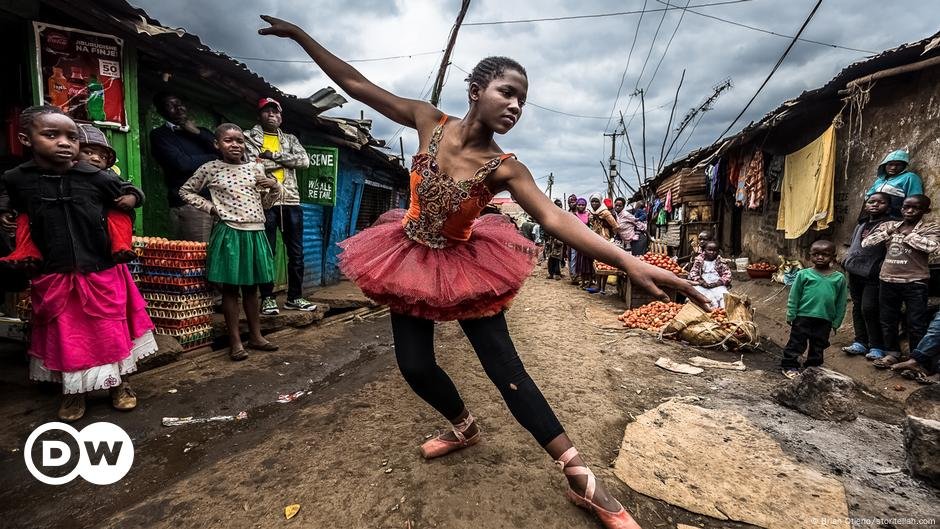Abimbola Ogundayro says international media organizations often perpetuate outdated stereotypes about Africa, such as corruption, disease, poor leadership, violence and poverty, and challenge harmful narratives about the continent. The advocacy NGO Africa No Filter is said to be leading the advocacy efforts and campaign.
Research by Africa No Filter and consulting firm Africa Practice reveals that these negative portrayals create a monolithic view of the continent and misrepresent Africa’s diverse reality.
This biased coverage amplifies perceived risk, increases borrowing costs and discourages investment. Particularly during election periods, as negative issues such as violence and electoral fraud receive disproportionate attention compared to similar political risks in non-African countries.
Are Africans responsible for how the continent is perceived?
To view this video, please enable JavaScript and consider upgrading to a web browser that supports HTML5 video.
Africa exposed to credit risk
“As singular stories are passed down over time, the identity of a place is now reduced to just that one thing,” Ogundayro told DW.
For example, 88% of media articles about Kenya during the election period were negative, compared to only 48% about Malaysia during the election period. As a result, international investors view African countries as riskier than they actually are.
According to the study, African borrowers lose up to $4.2 billion (€3.9 billion) a year in interest payments on their loans, largely due to stereotypical narratives.
Positive media sentiment correlates with lower risk profiles and lower bond yields, while negative media coverage increases a country’s perceived risk and leads to higher borrowing costs.
Mr. Ogundayro noted that stereotypes lead financiers to believe that doing business with African countries involves a certain element of risk.
“The disproportionate emphasis placed on such stories is the continuing notion that if you want to do business in Africa, you have to be prepared to lose money, and so perhaps that factor becomes important at the point when you are lending money to Africa. “It’s about getting more money,” Ogundayro said.
PR firm challenges stereotypes of African business
To view this video, please enable JavaScript and consider upgrading to a web browser that supports HTML5 video.
International Monetary Fund (IMF) chief Kristalina Georgieva recently told DW that Africa needs greater representation in global lending institutions. He hinted at the addition of a sub-Saharan African director to the IMF’s Board of Directors.
“We’re doing this because we believe Africa should be more fairly represented,” Georgieva said.
African countries fighting stereotypes
Rwanda’s bold tourism campaign, Visit Rwanda, has used soccer to attract investors and tourists to the country.
The campaign collaborated with English football club Arsenal, France’s Paris Saint-Germain and German team Bayern Munich to promote the country’s unique charm and cultural heritage.
Rwanda’s President Paul Kagame uses sports washing to improve the image of his country or organization by investing in high-profile sporting events and teams to distract attention from the problems plaguing the country. However, the Visit Rwanda campaign has been a success. Changing the narrative about the East African country.
DW senior editor Crispin Mwakideu said Rwanda had succeeded in selling something “real and concrete” through the campaign.
Nigerian film company Nollywood is at the forefront of telling authentic African stories, free from stereotypes.
Netflix has also joined the movement, bringing African originals such as ‘Blood & Water’ and ‘Queen Sono’ to the world stage, telling ‘local stories with global appeal’.
Fatima Alimohamed, CEO of Africa Brand Warrior, told DW: There has to be a deliberate purpose of wanting to go out to Africa and lead the storytelling as Africa,” he said.
“It’s a huge think tank on the continent, but we don’t even talk about it,” she said.
“As Africans, the first responsibility is on us, because we have to tell our stories. But if we leave the story to someone else, then clearly there is a problem.”
Paul Kagame relentlessly pursues a political, diplomatic and economic strategy to make Rwanda a powerhouse in Africa Image: Jakub Porzycki/NurPhoto/picture Alliance
Solutions moving forward
Mr. Ogundayro emphasized the importance of strengthening collaboration between local and foreign correspondents and stressed the need for more resources, training and partnerships in the media sector to drive meaningful development.
She urged journalists to rethink how they tell their stories.
“Is there a voice that I keep highlighting when I talk about Africa? Do I really include 54 countries? Different demographics so that the big picture that people who read my stories see is filled out? Are we really making sure that our voices are represented? Enough?” He added that African leaders should demand accountability for how their people and nations are portrayed.
Fatima Alimohamed, CEO of African Brand Warrior, a young marketing and communications agency, said it was important to take a “positive problem-solving” approach when engaging with professionals. , emphasized the importance of using inclusive language.
“Rather than just keep harping on problems and negativity, engage with people who can give you solutions,” she says.
This article is adapted from an episode of DW’s AfricaLink podcast.

